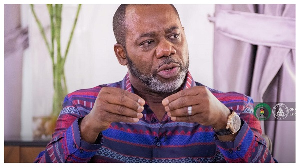Recent media reports have suggested that the biggest opposition political party in Ghana, the New Patriotic Party, is indebted to the extent that it may not be able to organise its impending presidential primaries slated for August 2010. As a result, the reports have added that the contestants for the primaries have been called upon to contribute towards the organisation of the primaries besides the mandatory fees they have to pay as contestants. The reports also indicated that the national chairman of the party have had to auction his personal property to settle some of the debt. This issue has reignited debates about the funding of political parties in the country, with some political analysts, suggesting that political parties in the country need to solicit for funding from their supporters, the business community, etc., as a way of funding themselves.
Private funding could be a good approach to funding political parties in the country, in that it will reduce the burden of the state for having to do so. The consequences of that approach for national development, however, are still very fresh in the mind, especially the “winner-takes-all” syndrome that has characterised the country’s politics since the restoration of multi-party democracy in 1992 under the Fourth Republican Constitution of the country. This may be because, while there could be a few genuine political party supporters in Ghana, it appears that most people belong to political parties in the country because of benefits they hope to derive from the parties, but not necessarily because they support the parties’ agenda towards national development. The situation where political party supporters have been rampaging to seize toilets, lorry parks, National Health Insurance Service offices, National Youth and Employment Programme offices, etc., because of claims about the contributions they have made towards the victory of their party, is still fresh in the mind. The ordinary Ghanaian who voted for a change of government may not be enthused about such developments, since they hardly contribute to the sort of development they voted for. There is no doubt that such activities are counter productive to national development, as they lead to reprisals and the polarisation of the nation.
Private funding of political parties also leads to corrupt practices, since most appointments are often based on appointees’ contributions to political parties in government. Besides, public contracts are often awarded to business entities that fund the ruling political party and this does not only contribute to corruption, favouritism and nepotism, but also shoddy execution of contracts, with huge cost to the state. This unfortunate situation arises because there is a lack of process upon which political appointees are held accountable besides election periods. So the “Golden Rule” has appeared to be: do what you like within your four-year mandate, so that you do not loose out completely at the end of your mandate. Of course, diligent execution of a political party manifesto can return a ruling political to power but this is hardly the practice in Ghana. It appears that people who do the right are often punished than rewarded.
In jurisdictions where public opinion is very strong to compel the government to institute actions against political appointees who misconduct themselves, private funding of political parties may not be a big issue to worry about. However, in Ghana’s currently situation, public opinion has not been compelling enough in making governments punish misbehaving (alleged corrupt) political appointees. Under the circumstance, the state needs to consider the funding of the nation’s political parties. This approach will allow for public interest and scrutiny of the conduct and management of political parties, both in opposition and in government. The situation will allow for the setting out of guidelines for the conduct and management of political parties and close the floodgates that are open for political party appointees, especially in government, and their supporters to use public resources as though such resources are their private properties, as in the case of the seizure of public offices and properties by ruling political party supporters.
It is high time matters of this nature are thoroughly debated and appropriate solutions found to them as quickly as possible when they arise and not just raise them and leave them while they keep haunting the nation. This is an important issue that needs serious attention by all who care about how scarce national resources are utilised. Once individuals or corporate organisation are expected to fund political parties, their contributions should be seen as investments that will attract dividends in the form of political appointments, award of contracts, and seizure of public properties by political appointees, funders and supporters respectively, at the expense of the state.
S. A. Achanso
PhD. Social Policy
University of Lincoln
UK.
Opinions of Tuesday, 13 July 2010
Columnist: Achanso, S. A.


















